Boeing Commercial Airplanes
Boeing Commercial Airplanes (BCA) is a division of the Boeing Company. It designs, assembles, markets, and sells jet airliners and business jets (Boeing Business Jets); it also provides product-related maintenance and training to customers worldwide.[4] It operates from division headquarters in Renton, Washington, with more than a dozen engineering, manufacturing, and assembly facilities located throughout the U.S. and internationally.[3] BCA includes the assets of the Douglas Aircraft division of the former McDonnell Douglas Corporation, which merged with Boeing in 1997.[5] In late 2016, BCA was home to some 78,000 employees.[6]
 | |
.jpg) | |
| Division | |
| Industry | Aviation |
| Founded | July 15, 1916 |
| Founder | William Boeing |
| Headquarters | , United States |
Area served | Worldwide |
Key people | Stan Deal (President and CEO of BCA) |
| Products | 737, 747, 767, 777, 787, Boeing Business Jet (BBJ) |
| Services | Maintenance, training |
| Revenue | |
| Total assets | |
| Total equity | |
Number of employees | 72,465 (May 25, 2017)[2] |
| Parent | The Boeing Company |
| Website | boeing |
| Footnotes / references [3] | |
Organization
Boeing Commercial Airplanes (BCA) is organized as:
- Airplane Programs
- Commercial Aviation Services
BCA subsidiaries:
- Aeroinfo Systems[7]
- Aviall[8]
- Aviation Partners Boeing,[9] a 50/50 joint venture with Aviation Partners Inc.
- Boeing Canada
- Boeing Training & Flight Services (was Alteon Training)[10]
- CDG[11]
- Jeppesen, formerly Jeppesen Sanderson.
- Preston Aviation Solutions[12]
- Global Aeronautica, formerly a 50/50 joint-venture with Alenia Aeronautica[13]
Management
In November 2016, Boeing announced that Ray Conner, 61, would step down immediately and be replaced.[6] Kevin G. McAllister was named president and CEO of Boeing Commercial Airplanes (BCA).[14] McAllister was the first outside recruitment in BCA history, and instructed by Dennis Muilenburg to triple revenue from aftermarket services from $15 billion to a target of $50 billion over 10 years, with a new purpose-built unit headed by Stan Deal.[6] Keith Leverkuhn was the vice president and general manager of the 737 MAX program in March 2017 when it received certification.[15] In October 2019, Boeing ousted Kevin McAllister, the first high-level departure since two fatal crashes of its 737 MAX jets, and replaced him with Stan Deal as president and CEO of BCA.[16][17] One insider called McAllister a “scapegoat” as he joined BCA late in the 737 MAX development.[16]
Products
Model naming convention
For all models sold beginning with the Boeing 707 in 1957, except the 720, Boeing's naming system for commercial airliners has taken the form of 7X7 (X representing a number). All model designations from 707 through 787 have been assigned, leaving 797 as the only 7X7 model name not assigned to a product.
For models 707 to 777, the full model number consists of an airplane's model number, for example 707 or 747, followed by a hyphen and three digits that represent the series within the model, for example 707-320 or 747-400. In aviation circles, a more specific model designation is sometimes used where the last two digits of the series designator are replaced by the two digit, alpha-numeric Boeing customer code, for example 747-121, representing a 747-100 originally ordered by Pan American World Airways (Boeing customer code 21) or 737-7H4, representing a 737-700 originally ordered by Southwest Airlines (Boeing customer code H4). Codes do not change for aircraft transferred from one airline to another. Unlike other models, the 787 uses a single digit to designate the series, for example 787-8. This convention was followed in the development of the newest version of the 747, the 747-8, along with the 737 MAX and 777X series.
Additional letters are sometimes appended to the model name as a suffix, including "ER" to designate an "extended range" version, such as the 777-300ER, or "LR" to designate a "long range" version, for example 777-200LR. Other suffix designators include "F" for "freighter" (747-400F), "C" for "convertible" aircraft that can be converted between a passenger and freighter configuration (727-100C) and "M" for "combi" aircraft that are configured to carry both passengers and freight at the same time (757-200M, 747-400M). Passenger aircraft that are originally manufactured as passenger aircraft and later converted to freighter configuration by Boeing carry the suffix "BCF" designating a Boeing converted freighter (747-400BCF).
Aircraft in production or development
| Aircraft model | Number built[18] | Description | Capacity | First flight | Variants in production | Out-of-production variants |
|---|---|---|---|---|---|---|
| 737 | 10,478 | Twin‑engine, single aisle, short- to medium-range narrow-body | 85–215 | April 9, 1967 | 737 MAX, BBJ, C-40, 737 AEW&C, P-8, | 100, 200, 200C/Adv, 300, 400, 500, 600, 700, 700ER, 800, 900, 900ER |
| 747 | 1,548 | Heavy, four‑engine, partial double deck, twin–aisle main deck, single–aisle upper deck, medium- to long-range widebody | 467–605 | February 9, 1969 | 8I, 8F, BBJ | 100, 100SR/B, 200, 200F/C, SP, 200M, 300, 300M/SR, 400, 400M/D/F/ER/ERF, VC-25, E-4, YAL-1 |
| 767 | 1,135 | Heavy, twin-engine, twin aisle, medium- to long-range widebody | 180–375 | September 26, 1981 | 300F, KC-767, KC-46, E-767 | 200, 200ER, 300, 300ER, 400ER[19] |
| 777 | 1,584 | Heavy, twin-engine, twin aisle, medium- to long-range, ultra long-range (200LR), widebody | 301–550 | June 12, 1994 | 200LR, 300ER, Freighter,[20] 777X | 200, 200ER, 300 |
| 787 | 789 | Heavy, twin-engine, twin aisle, long-range widebody | 210–330[21] | December 15, 2009 | 8, 9,[22] 10, BBJ[23] |
| Expected EIS |
Type | Description | Notes |
|---|---|---|---|
| 2020 | 777X | New 777 series, with the lengthened 777-9X, and extra-long-range 777-8X. New engine and new composite wings with folding wingtips | Revealed 03/2019 |
| 2025-2027 | Boeing NMA | Middle of the market, between the 737 MAX and the 787 Dreamliner, also meant to replace aging 757s and 767s | |
| after 2030 | Y1/737RS | Boeing 737 replacement |
Orders and deliveries
The table below lists only airliners from the jet era.
| Aircraft | Orders | Deliveries | Unfilled |
|---|---|---|---|
| 707 | |||
| 717-200 | |||
| 720 | |||
| 727 | |||
| 737 Original | |||
| 737 Classic | |||
| 737 NG | |||
| 737 MAX | |||
| 747 | |||
| 747-8 | |||
| 757 | |||
| 767 | |||
| 777 | |||
| 777X | |||
| 787 | |||
| Totals |
Discontinued aircraft
| Aircraft model |
Number built |
Notes |
|---|---|---|
| 1 | 2 | |
| 6 | 1 | |
| 6D | 2 | |
| 7 | 1 | |
| 8 | 1 | |
| 40 | 84 | |
| 64 | 1 | |
| 80 | 16 | |
| 81 | 2 | |
| 95 | 25 | |
| 200 Monomail | 1 | Converted into the 8-passenger Model 221A |
| 203 | 7 | |
| 204 | 7 | |
| 221 Monomail | 1 | Converted into the 8-passenger Model 221A |
| 247 | 75 | |
| 307 Stratoliner | 10 | |
| 314 Clipper | 12 | |
| 367-80 | 1 | |
| 377 Stratocruiser | 56 | Civil development of the military C-97 |
| 707 | 865 | |
| 720 | 154 | Modified variant of the 707 |
| 717 | 156 | Originally developed by McDonnell Douglas as the MD-95: an evolution of the DC-9 family. |
| 727 | 1,831 | Three-engine narrow-body jet |
| 757 | 1,050 | Narrow-body twin-engine jet |
Gallery
- Boeing 7x7 series
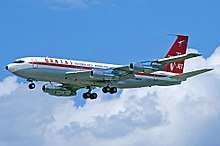
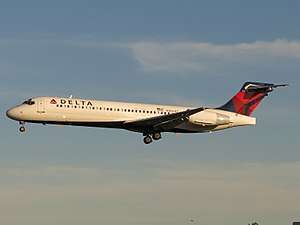
.jpg)
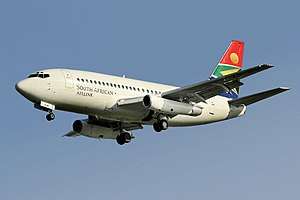
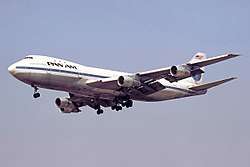
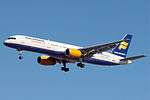
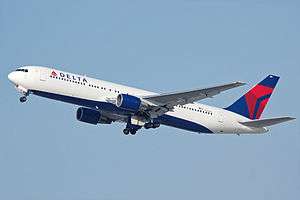
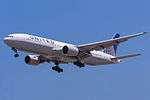
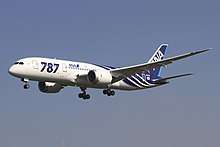
Specialty and other aircraft
Airlines commonly order aircraft with special features or options, but Boeing builds certain models specifically for a particular customer.
- The Boeing 707-138B was a shortened-fuselage, long-range model only sold to Qantas.
- The Boeing 757-200M was a single-example model built for Royal Nepal Airlines (now called Nepal Airlines). This plane could be converted between passenger and freighter configuration. It was launched by Royal Nepal Airlines in 1986 and delivered two years later.
- Boeing 747
- The Shuttle Carrier Aircraft
- The Boeing 747 Large Cargo Freighter (named the Dreamlifter) is a wide-body cargo aircraft.
- The 747SP production resumed nearly four years after the supposedly final 747SP was built, to manufacture one aircraft for the United Arab Emirates. It had a cockpit crew of two instead of the three-crew layout of other 747SPs.
- Two Boeing VC-25s were built for the US Air Force as Presidential Air Force One transports. This model was a highly modified 747-200B.
- Boeing was a consultant to Sukhoi on the Russian Regional Jet program that subsequently became the Sukhoi Superjet 100 twin-engine narrowbody airliner.
Concepts
- Boeing 2707 – supersonic airliner, canceled.
- Boeing 7J7 – high-efficiency propfan airliner, canceled and may later resume for Y1.
- Boeing 747-300 Trijet - high-efficiency trijet version of the Boeing 747-200, canceled.
- Boeing 777-100/777 trijet - the original proposed version of the Boeing 777
- Boeing New Large Airplane – double-deck jumbo airliner, canceled.
- Boeing RC-1 - cargo aircraft, canceled.
- Boeing Sonic Cruiser – near-sonic airliner, canceled.
- Boeing Liquid Hydrogen (LH2) airplane that uses liquid hydrogen as fuel.[26]
- Hypersonic Airliner Concept. Mach number 5 speed.[27][28]
Airfoils
- Boeing 103 - used on Model 40 and F2B
- Boeing 103A - used on F2B and F3B
- Boeing 106 - used on Model 80, P-12, Monomail, Model 226
- Boeing 106B - used on Model 95, Model 247D, P-12
- Boeing 106R - used on various Beriev models
- Boeing 109 - used on Model 95 and P-26
- Boeing 117 - used on XPBB, B-29 and derivatives (307, 367, 377), all Aero Spacelines models, Tupolev Tu-4, Tu-70, Tu-75, Tu-80.
Major facilities
- Long Beach, California - McDonnell Douglas aircraft assembly and testing. It currently supports Boeing Commercial Airplanes
- Seattle - Puget Sound region, Washington
- Boeing Field, Seattle, Washington - Flight testing for Boeing aircraft, except McDonnell Douglas-designed aircraft
- Boeing Everett Factory, Everett, Washington - 747, 767, 777, and 787 production and final assembly plant
- Boeing Renton Factory, Renton, Washington - 737 and former 707, 727, and 757 production and final assembly plant
- Boeing Charleston Factory, North Charleston, South Carolina - 787 sub-assemblies and final assembly plant
See also
- Airbus
- Bombardier Aerospace
- Comac
- Competition between Airbus and Boeing
- Embraer
- List of civil aircraft
- United Aircraft Corporation
References
- "2017 result". Boeing.
- "Boeing: The Boeing Company: General Information". www.boeing.com. Retrieved March 11, 2019.
- "Backgrounder" (PDF). The Boeing Company. November 2014.
Boeing Commercial Airplanes employs more than 83,000 people under the leadership of President and CEO Ray Conner. The business unit’s revenue in 2013 was a record $53 billion.
- "Boeing Commercial Airplanes: A Better Way To Fly". The Boeing Company.
- "McDonnell Douglas shareholders approve merger with Boeing" (Press release). The Boeing Company. July 25, 1997. Archived from the original on December 24, 2010. Retrieved January 19, 2011.
McDonnell Douglas Corporation's (NYSE: MD) shareholders voted today to approve the merger with The Boeing Company (NYSE: BA).
- "Boeing goes outside for new Commercial Airplanes CEO". seattletimes.com. November 21, 2016. Retrieved January 1, 2017.
- "Boeing Vancouver - Global IT Solutions for Airline Operations". www.aeroinfo.com. Retrieved March 11, 2019.
- "Aviall - Aircraft Parts, Supplies, Chemicals, Tools and Repair Services - Aviall". www.aviall.com. Retrieved March 11, 2019.
- "Home - Aviation Partners Boeing". www.aviationpartnersboeing.com. Retrieved March 11, 2019.
- Boeing Training & Flight Services Archived November 30, 2006, at the Wayback Machine
- "Aerospace Engineering Services". CDG. Retrieved March 11, 2019.
- Preston Aviation Solutions
- "Boeing Acquires Alenia North America's Interest in Global Aeronautica". Boeing, December 22, 2009.
- "Executive Biography of Kevin McAllister". Boeing.com. Retrieved January 1, 2017.
- "Boeing 737 MAX 8 Earns FAA Certification". boeing.mediaroom.com. PRNewswire: Boeing Communications. March 9, 2017.
- Johnson, Eric M.; Shepardson, David (October 23, 2019). "Boeing ousts airliner chief as 737 MAX crisis grows". Reuters. Retrieved December 24, 2019.
- https://www.cnbc.com/2019/10/22/boeings-head-of-commercial-airplanes-to-leave-company-amid-737-max-crisis.html
- as of January 2019
- The Boeing 767 family. Boeing.
- "Boeing: 777". www.boeing.com. Retrieved June 5, 2018.
- 787-8 Fact Sheet, 787-9 Fact Sheet. Boeing.
- Trimble, Stephen. "Boeing shows off completed horizontal stabiliser for 787-9". Flight International, January 15, 2013.
- "Boeing Business Jets". Boeing. Retrieved November 7, 2013.
- "Boeing: Commercial". www.boeing.com. Retrieved March 11, 2019.
- "Boeing: Commercial". www.boeing.com. Retrieved February 19, 2019.
- Gervais, Edward L. (November 29, 2007). "Boeing Current and Future Product Review" (PDF). Presentation to Federal Aviation Administration Great Lakes Region 23rd Annual Airport Conference. Boeing Commercial Airplanes. p. 54. Archived from the original (PDF) on February 27, 2009. Retrieved March 18, 2008.
- http://aviationweek.com/commercial-aviation/boeing-unveils-hypersonic-airliner-concept
- Pappalardo, Joe (June 26, 2018). "How Boeing's Hypersonic Passenger Plane Concept Works". Popular Mechanics. Retrieved March 11, 2019.
External links
- Boeing Commercial Airplanes page
- BCA Recent orders summary page and BCA Orders and Deliveries report page
- Official site for Boeing's new airplanes
- Complete production list starting with Model 1
- Boeing’s Triumph: The American Jetliner
- BBC Q&A: Boeing and Airbus